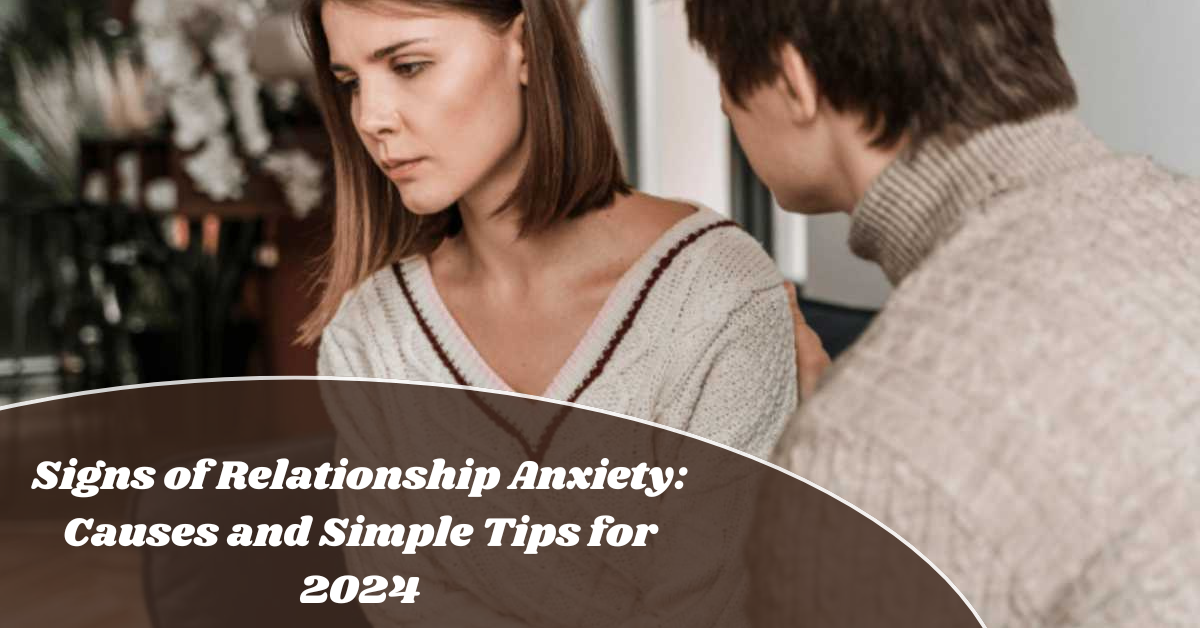to Are you feeling overwhelmed by relationship anxiety? As a Dating Guru in the field, I understand how common it is to experience doubts and fears in relationships. In this article, we’ll delve into the signs of relationship anxiety causes, and most importantly, effective tips to help you navigate through it.
Relationship anxiety can manifest in various ways, impacting your emotional well-being and the dynamics of your relationship. By recognizing the signs early on, you can address these concerns proactively and work towards fostering a healthier connection with your partner. Understanding the root causes of relationship anxiety is crucial in developing strategies to overcome it and build a more secure and fulfilling relationship.
Join me as we explore practical tips and techniques to confront and conquer relationship anxiety. By implementing these strategies, you can cultivate a stronger sense of trust, communication, and intimacy in your relationship, paving the way for a more harmonious and satisfying love life.
Recognizing Relationship Anxiety

When it comes to relationship anxiety, recognizing the signs early is crucial for your emotional well-being and the health of your relationship. By understanding and acknowledging these signs, you can take proactive steps to address them effectively. Let’s explore the emotional and behavioral signs that may indicate relationship anxiety.
Emotional Signs
- Constant Worry: You find yourself constantly worrying about the future of your relationship, doubting your partner’s feelings, or fearing abandonment.
- Insecurity: You feel insecure about yourself, your partner, or the relationship, leading to self-doubt and questioning your worthiness of love.
- Overthinking: Your mind is filled with excessive thoughts and what-ifs, causing you to analyze every aspect of the relationship obsessively.
- Fear of Rejection: You have an intense fear of rejection or being hurt, making you hypersensitive to any signs of potential conflict or rejection.
- Avoidance: You tend to avoid discussions about the future of the relationship or evade situations that trigger your anxiety.
- Seeking Reassurance: You constantly seek reassurance from your partner, needing validation of their love and commitment.
- Overreacting: Small issues or uncertainties trigger intense emotional reactions, leading to arguments or misunderstandings.
- Physical Symptoms: Relationship anxiety can manifest in physical symptoms like stomachaches, headaches, or sleep disturbances due to stress and worry.
Recognizing these emotional and behavioral signs is the first step toward addressing relationship anxiety. By being aware of these indicators, you can take proactive measures to manage your anxiety and cultivate a healthier, more resilient relationship.
Understanding the Relationship Anxiety Causes

When it comes to relationship anxiety, understanding the root causes can help you address and manage these feelings effectively. Here’s a breakdown of some common triggers that can contribute to relationship anxiety:
- Past Trauma: Relationship anxiety can stem from past traumatic experiences in previous relationships or even childhood. If you have faced betrayal, abandonment, or emotional abuse in the past, it can manifest as anxiety in your current relationship.
- Insecurities: Deep-seated insecurities about yourself, your worth, or your desirability can lead to relationship anxiety. Feeling unworthy of love or constantly seeking validation from your partner can exacerbate these feelings.
- Communication Issues: Poor communication with your partner can create misunderstandings, uncertainties, and doubts that fuel relationship anxiety. Lack of open and honest communication can make you feel disconnected and anxious about the future of the relationship.
- Attachment Styles: Your attachment style, formed in early relationships with caregivers, can influence how you connect with your partner. Anxious attachment styles, characterized by fear of abandonment and neediness, are often linked to relationship anxiety.
- Fear of Vulnerability: Opening up and being vulnerable in a relationship can be intimidating, especially if you fear getting hurt or rejected. This fear of being emotionally exposed can trigger anxiety around intimacy and trust.
- High Expectations: Setting unrealistic expectations for your partner or the relationship can set you up for disappointment and anxiety. Constantly striving for perfection or expecting your partner to fulfill all your needs can create undue pressure and anxiety.
- External Stressors: External factors like work pressure, financial issues, or family conflicts can spill over into your relationship, causing additional stress and anxiety. These external stressors can impact your emotional well-being and the dynamics of your relationship.
By recognizing these potential causes of relationship anxiety, you can start addressing them proactively. Identifying the underlying issues and working on them can help you navigate your anxiety and create a more secure and fulfilling bond with your partner.
Overcoming Relationship Anxiety

When dealing with relationship anxiety, it’s crucial to focus on effective strategies that can help you navigate through challenging times. Here are some actionable tips tailored to empower you in overcoming relationship anxiety.
Communication Tips
Enhancing communication within your relationship is pivotal in addressing relationship anxiety. Open and honest communication can foster trust and understanding between you and your partner. Here are some practical communication tips:
- Express Your Feelings: Share your emotions and concerns openly with your partner to ensure clarity and avoid misunderstandings.
- Active Listening: Practice active listening by giving your partner your full attention and validating their feelings to strengthen your emotional connection.
- Set Boundaries: Establish healthy boundaries to maintain respect and harmony within the relationship, allowing both partners to feel secure and valued.
- Seek Professional Help: Consider couples therapy or counseling to improve communication skills and address underlying issues contributing to relationship anxiety.
Self-care Strategies
Prioritizing self-care can significantly impact how you manage relationship anxiety and enhance your overall well-being. Here are self-care strategies to help you navigate through challenging times:
- Practice Mindfulness: Engage in mindfulness practices such as meditation and deep breathing exercises to center yourself and reduce anxious thoughts.
- Maintain Healthy Habits: Ensure you get adequate rest, exercise regularly, and eat a balanced diet to support your physical and mental health.
- Engage in Hobbies: Dedicate time to activities you enjoy to relieve stress and foster a sense of fulfillment outside of your relationship.
- Set Personal Boundaries: Establish boundaries to protect your mental and emotional health, allowing you to prioritize self-care without guilt.
By implementing these communication tips and self-care strategies, you can proactively address relationship anxiety, promote emotional well-being, and cultivate a healthier, more fulfilling relationship.
Building Healthy Relationships

To build healthy relationships, it’s essential to understand and address relationship anxiety effectively. By recognizing and managing this issue, you can cultivate strong, meaningful connections with your partner. Here are some key strategies to help you navigate relationship anxiety and build healthier relationships:
- Open Communication:
- Express your feelings openly and honestly with your partner.
- Practice active listening to understand each other better.
- Setting boundaries can help in maintaining a healthy balance in the relationship.
- Prioritize Self-Care:
- Engage in mindfulness practices to reduce stress and anxiety.
- Maintain healthy habits such as regular exercise and a balanced diet.
- Pursue hobbies and activities that bring you joy and fulfillment.
- Setting personal boundaries is crucial for self-respect and preserving your well-being.
By incorporating these strategies into your daily life, you can proactively address relationship anxiety, improve communication, and nurture a strong foundation for a healthy and fulfilling relationship. Remember, building healthy relationships requires effort and commitment from both partners.
Conclusion
Understanding the signs and causes of relationship anxiety is crucial for maintaining a healthy and fulfilling connection with your partner. By recognizing these indicators early on and addressing the underlying triggers, you can take proactive steps to manage your anxiety effectively. Prioritizing open communication, setting boundaries, and practicing self-care are key strategies to foster trust and intimacy in your relationship. Remember, building a strong foundation requires effort and commitment from both you and your partner. Embrace these strategies, and you’ll be on your way to overcoming relationship anxiety and creating a more harmonious bond.
Frequently Asked Questions
What are the common signs of relationship anxiety?
Relationship anxiety signs include constant worry about the future, feelings of insecurity, overthinking, fear of rejection, avoidance of relationship discussions, seeking reassurance, overreacting to small issues, and experiencing physical symptoms like stomachaches and sleep disturbances.
What are the root causes of relationship anxiety?
Root causes of relationship anxiety include past trauma, deep-seated insecurities, communication issues, attachment styles, fear of vulnerability, high expectations, and external stressors.
What are some strategies for overcoming relationship anxiety?
Some strategies for overcoming relationship anxiety include enhancing communication by expressing feelings openly, practicing active listening, setting boundaries, and seeking couples therapy. Prioritizing self-care through mindfulness practices, healthy habits, hobbies, and personal boundaries is also crucial.

